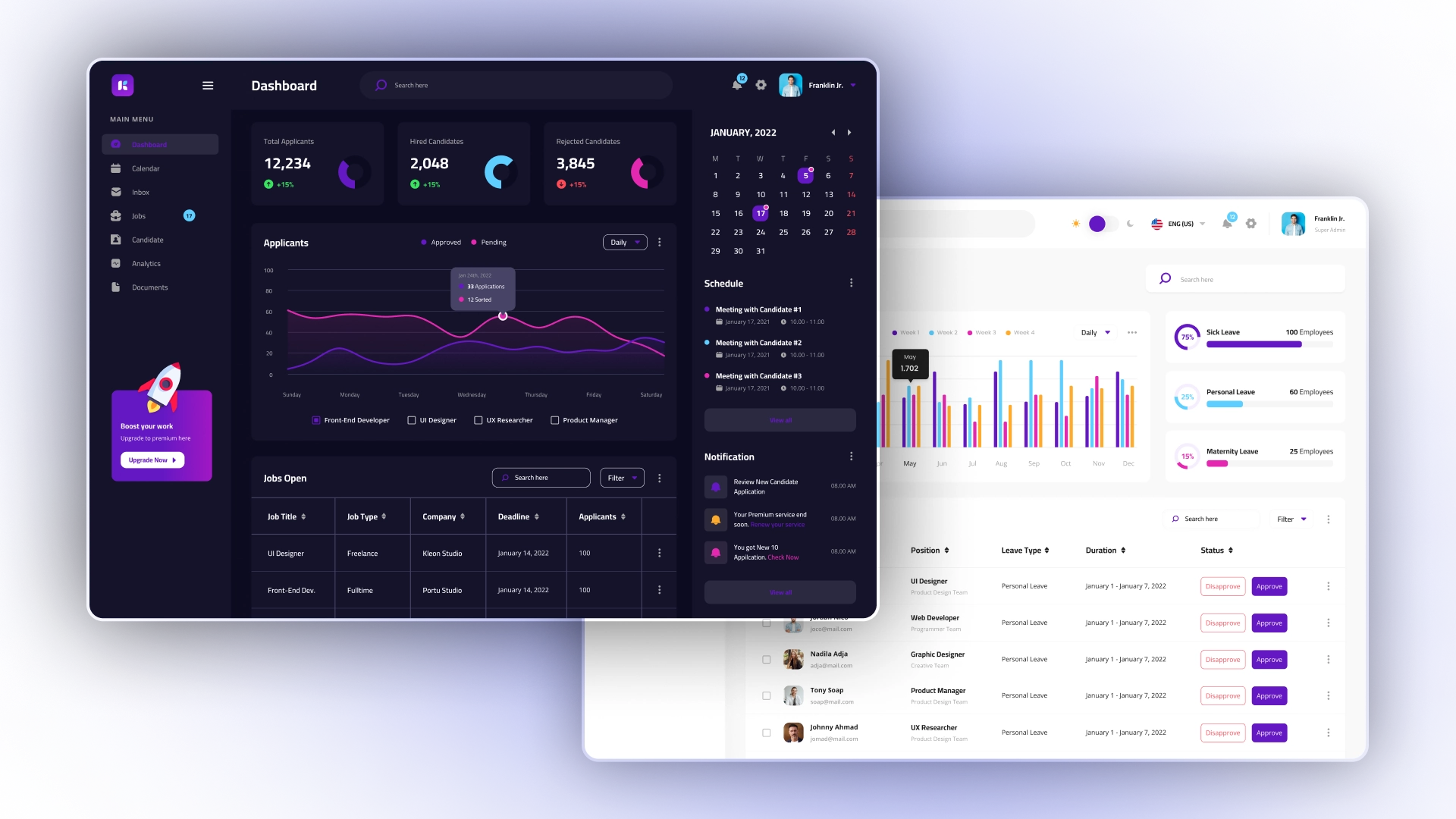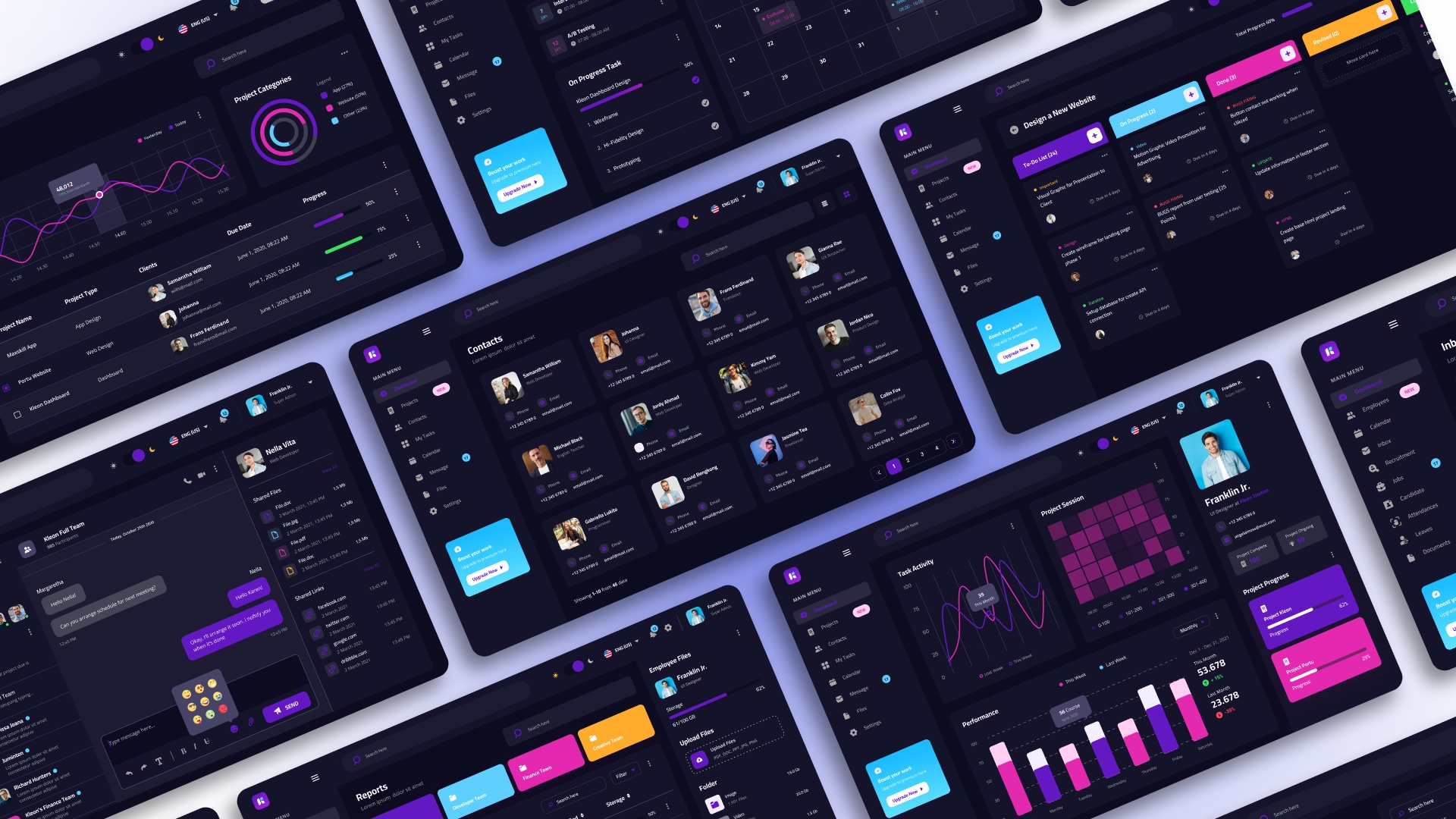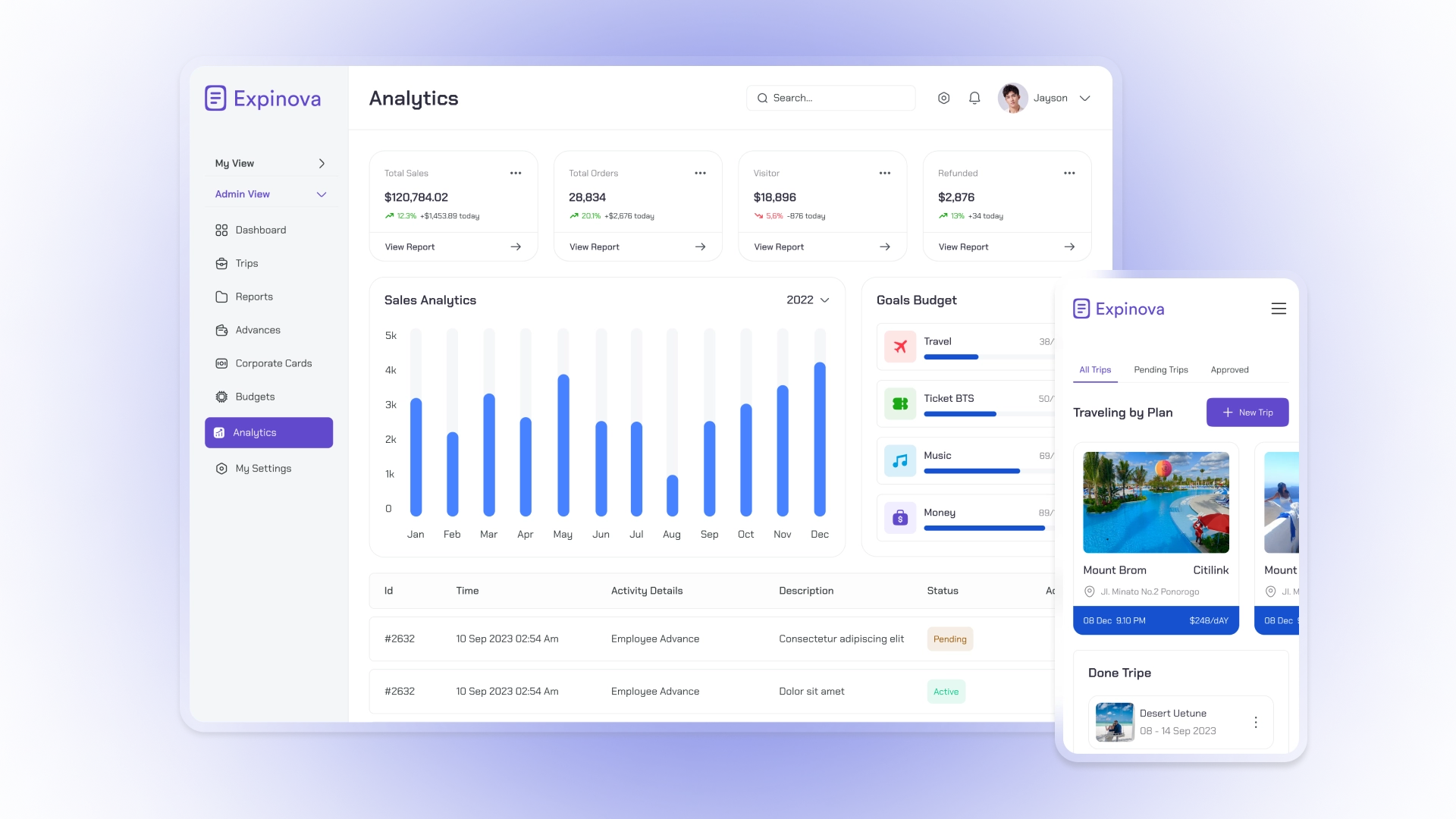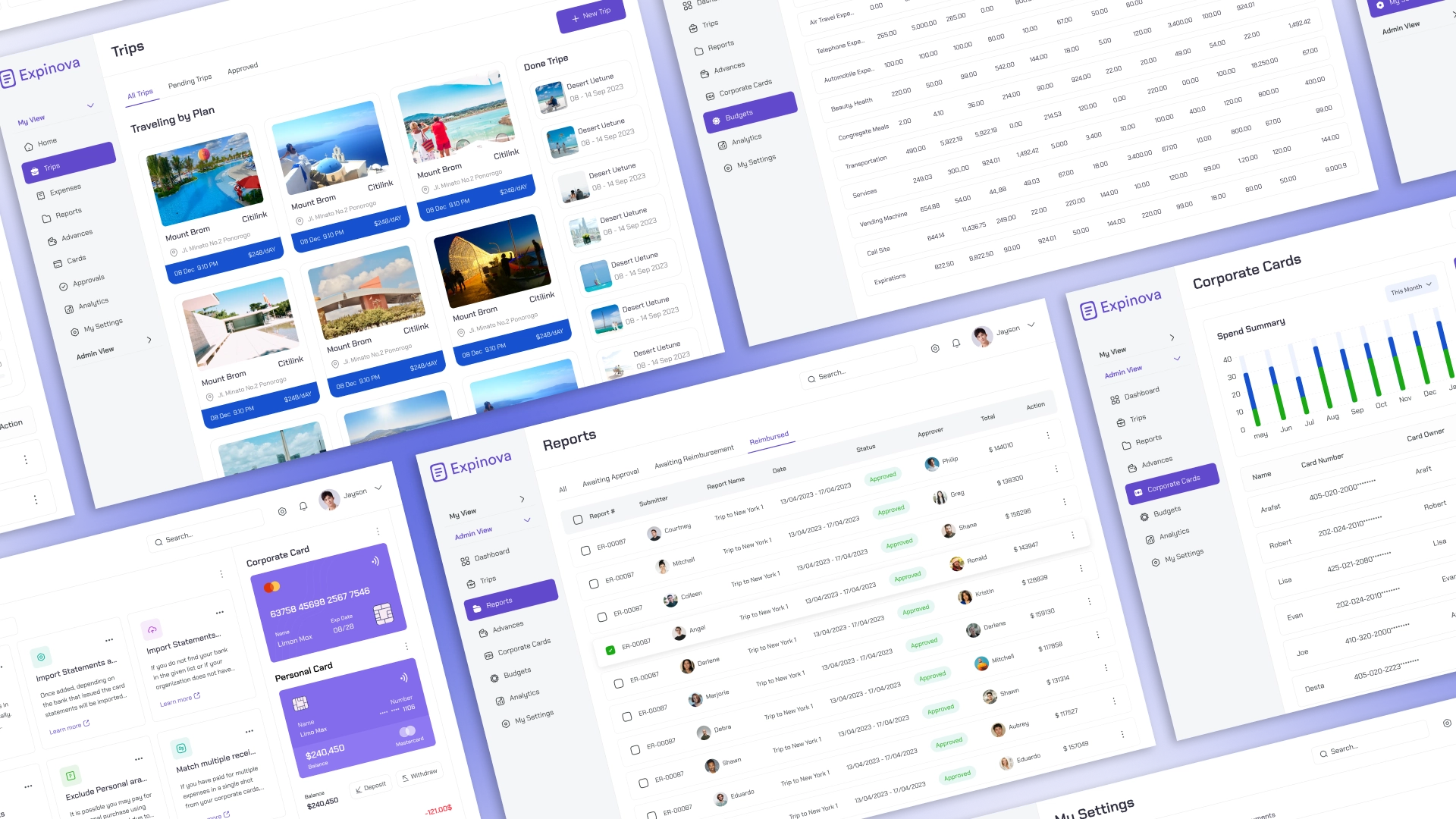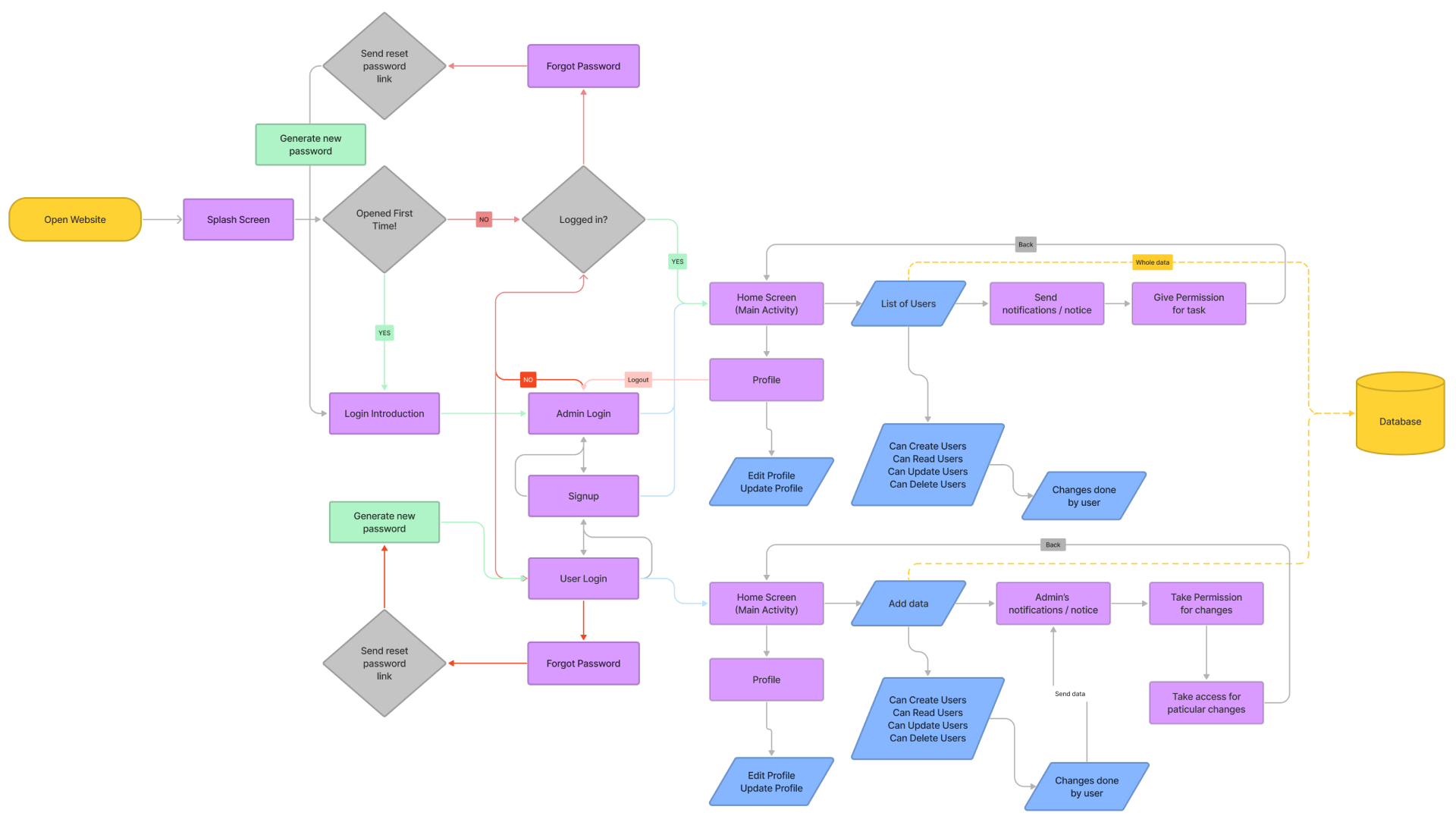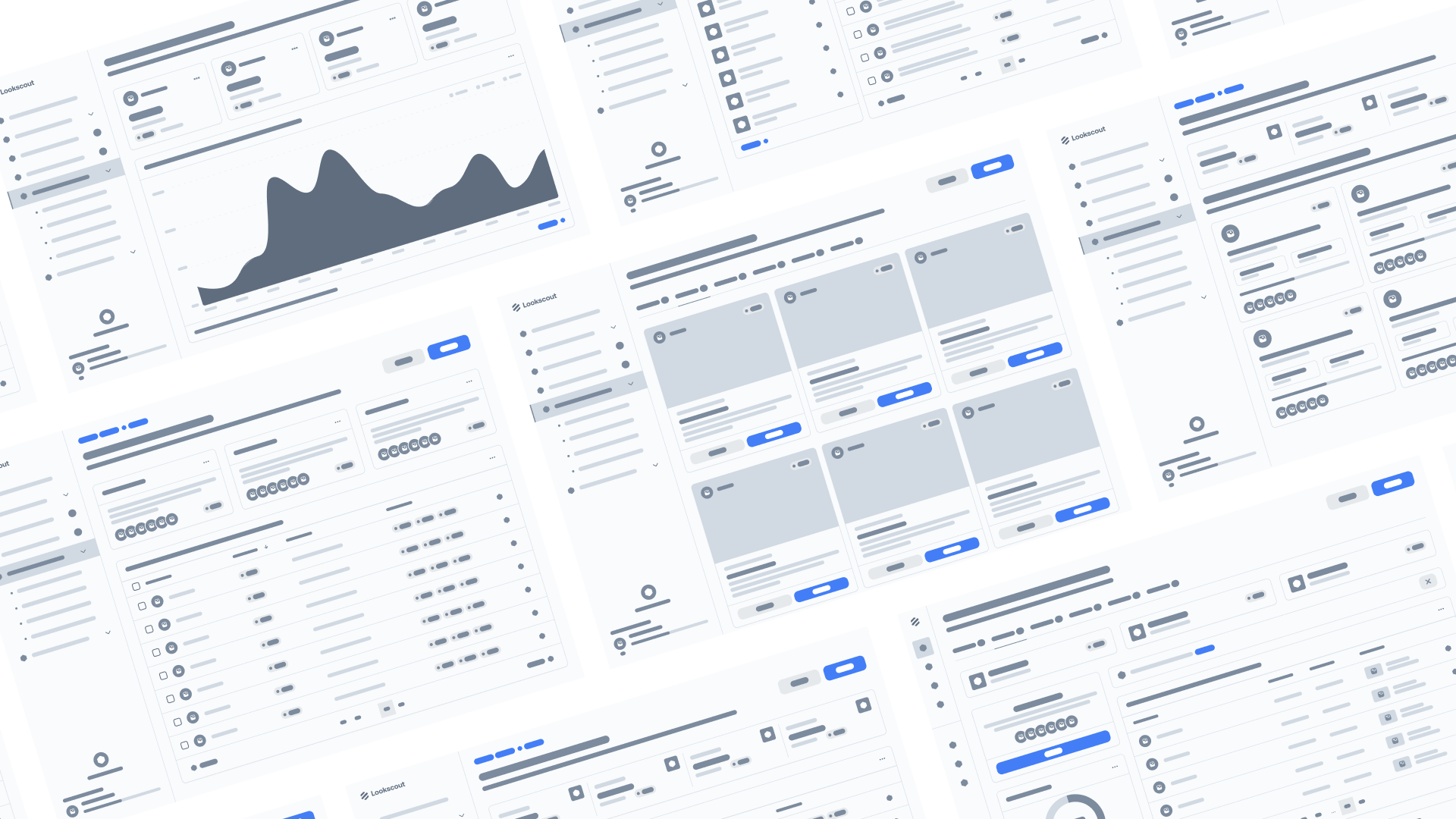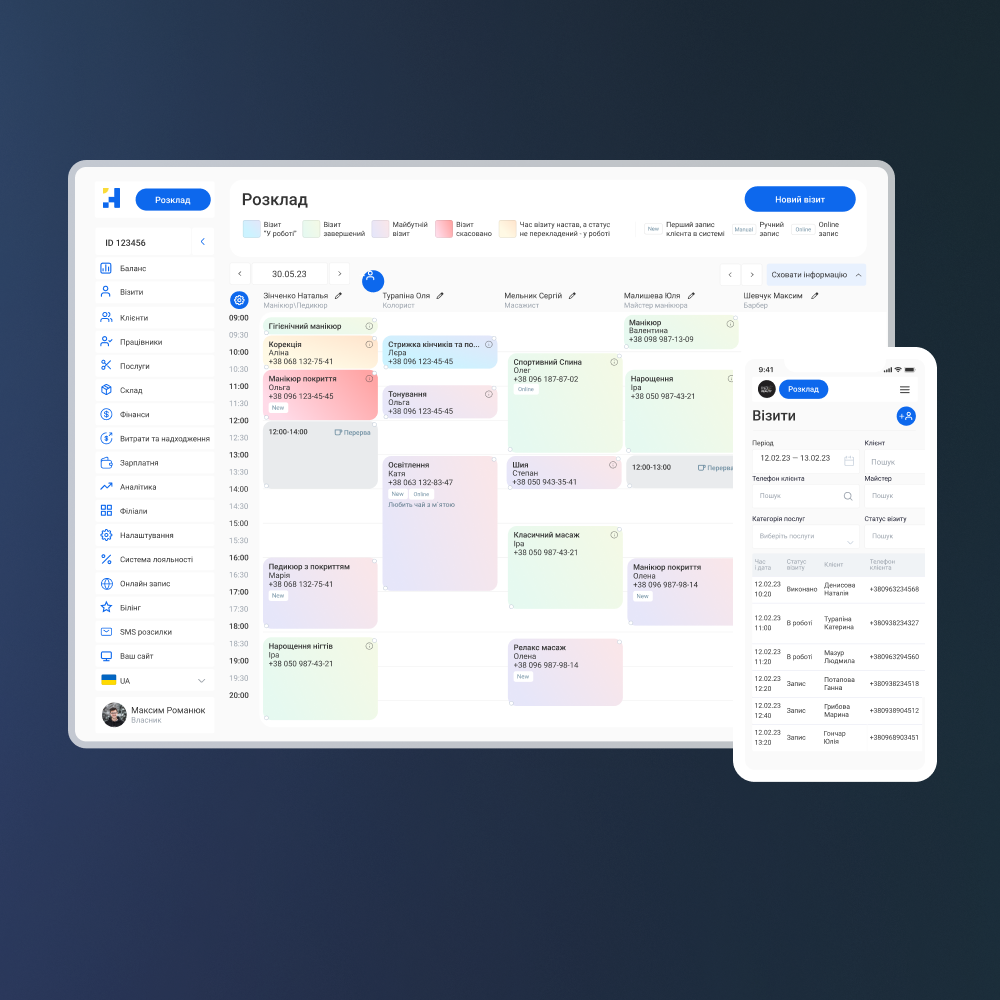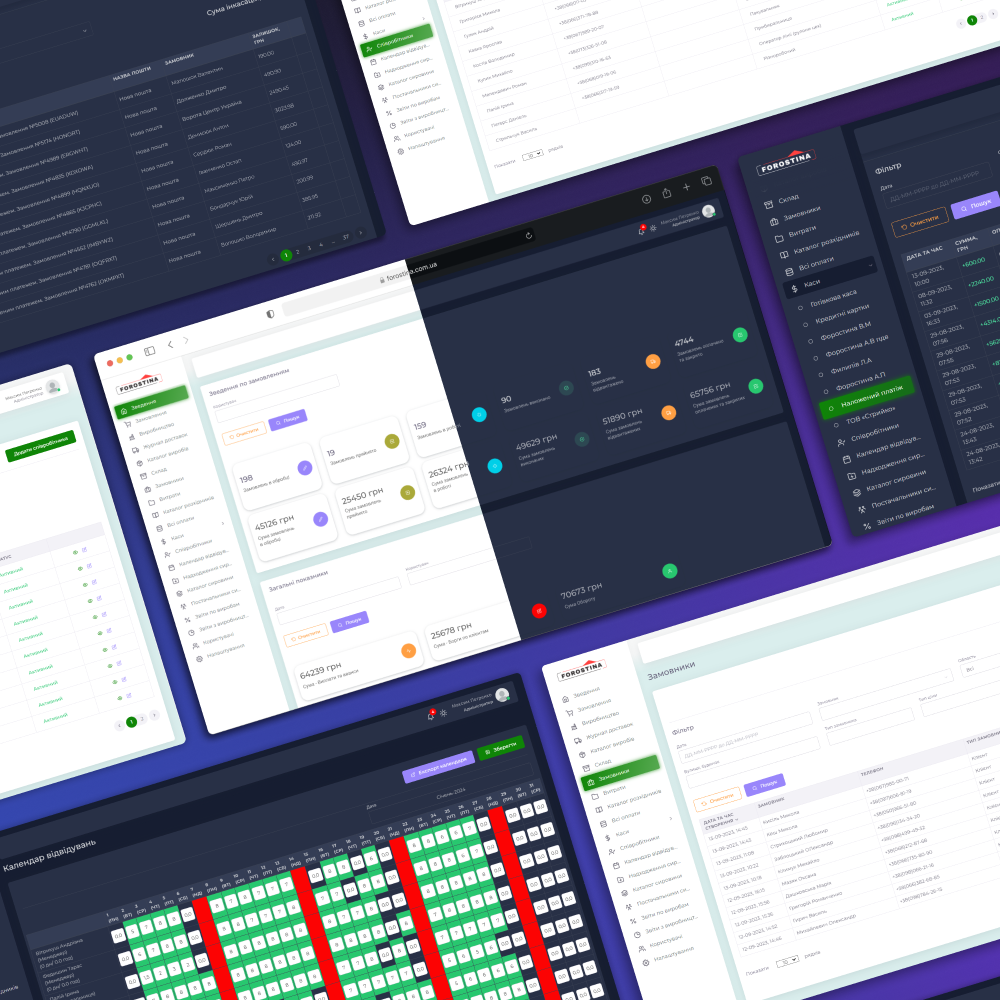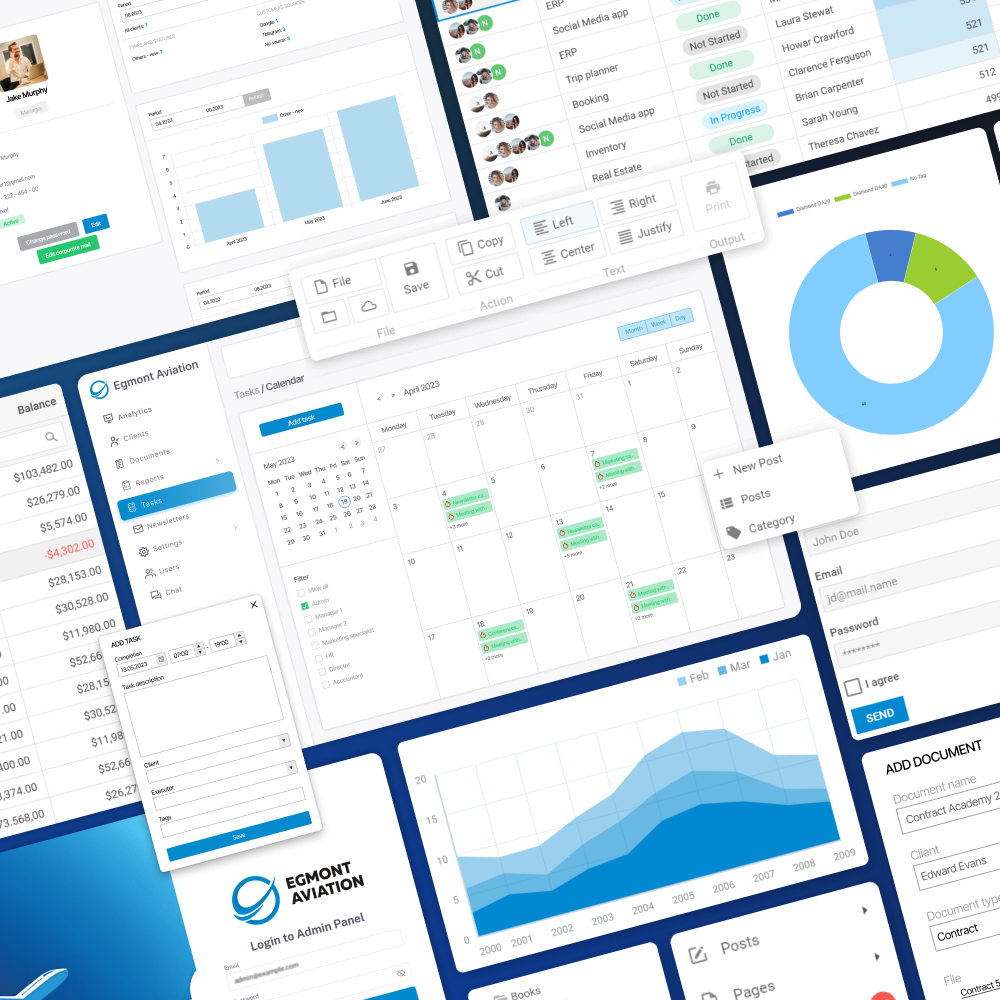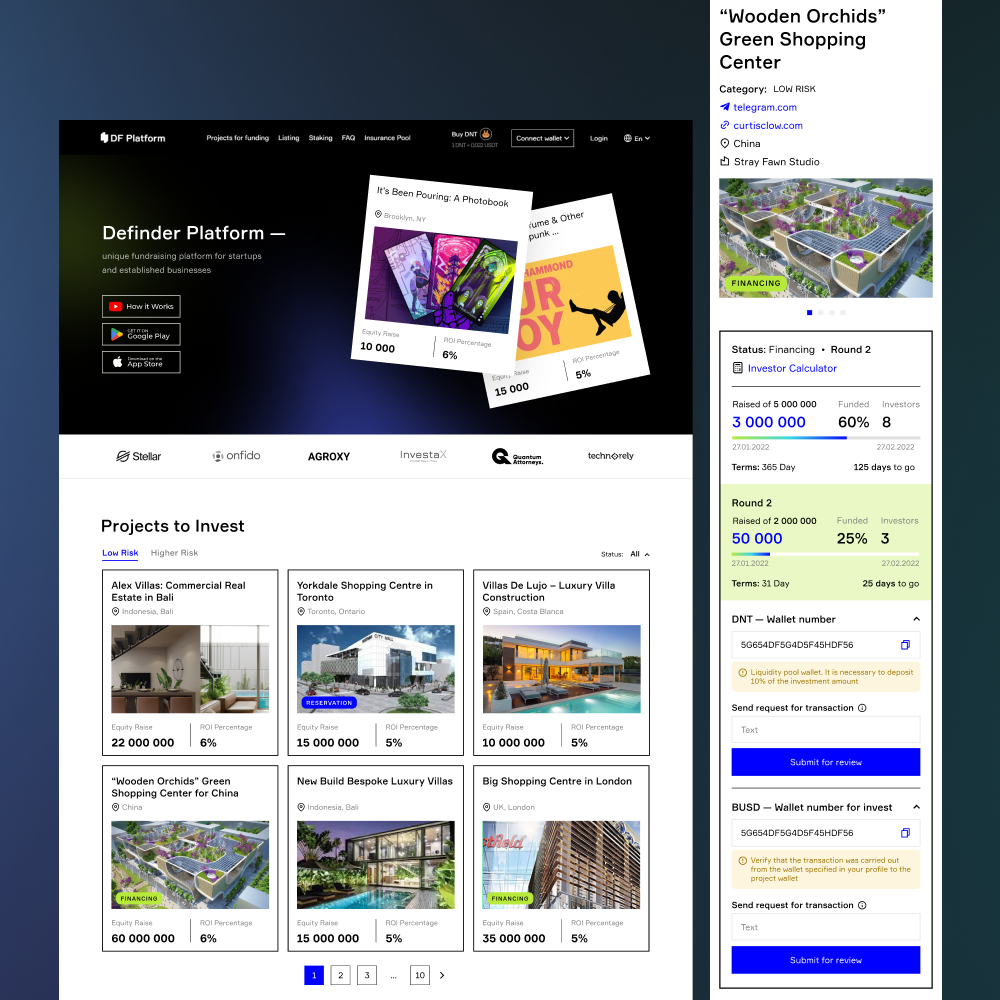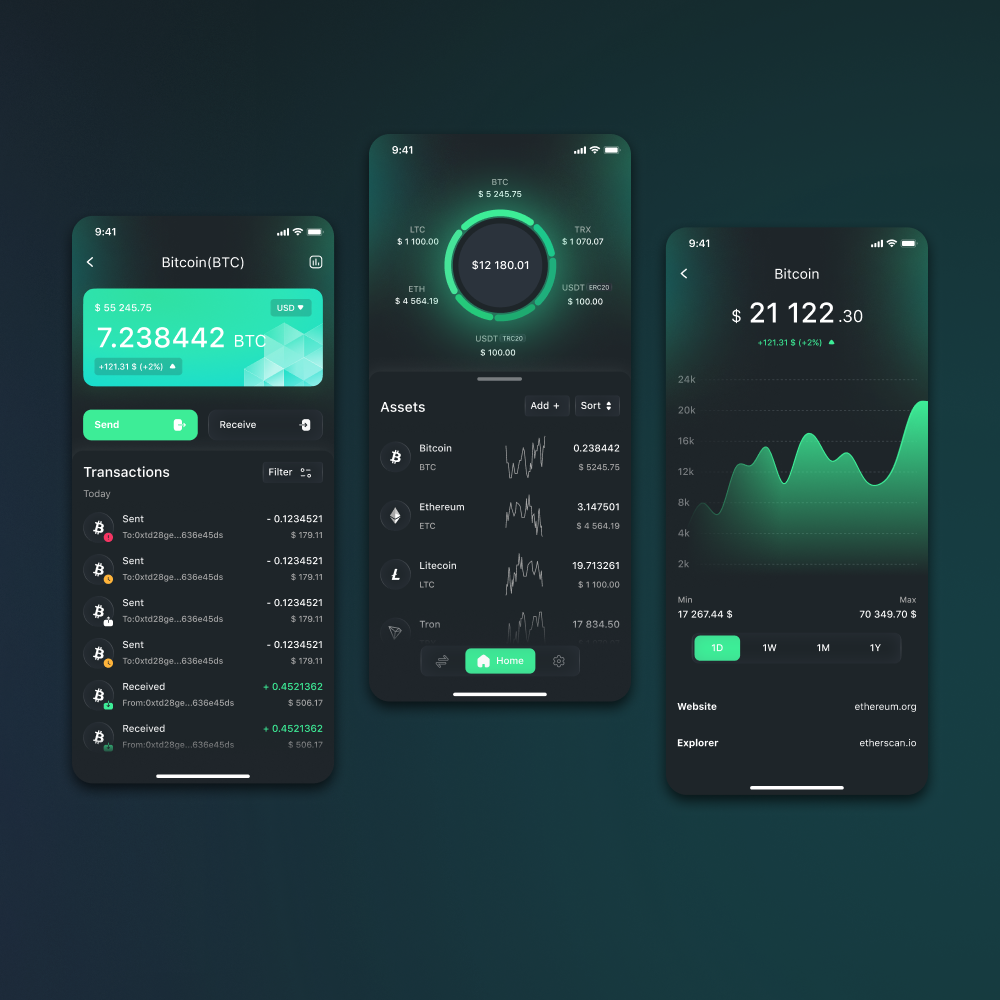








ERP development
The ERP system is a comprehensive Smart solution for accurate business management
Business efficiency is always determined by the speed of processing a large amount of information, effective management of resources and accurate coordination of team work. ERP (Enterprise Resource Planning) systems help to achieve these goals — integrated software solutions designed to automate business processes and manage company resources.
This is a modular software that contains a set of components for full control of business processes: financial - for accounting control and execution of plans, personnel - for flexible personnel management and evaluation of its effectiveness, operational - for logistics control, etc.
ERP involves the synchronization of many components for more convenient aggregation of all information. In addition, the importance of the implementation of such solutions for business is shown by statistics and the growing pace of implementation of such systems. Thus, a study conducted by G2 showed the growth of the market for ERP solutions to $78.4 billion by 2026.
In turn, Aberdeen Group claims that companies that use ERP systems have an average of 23% higher revenue compared to those that do not use such systems.
It turns out that ERP systems are a key tool for improving business efficiency, especially for large companies with extensive structures and complex business processes. At the same time, ERP can also significantly improve the efficiency of small and medium-sized businesses by optimizing internal processes.
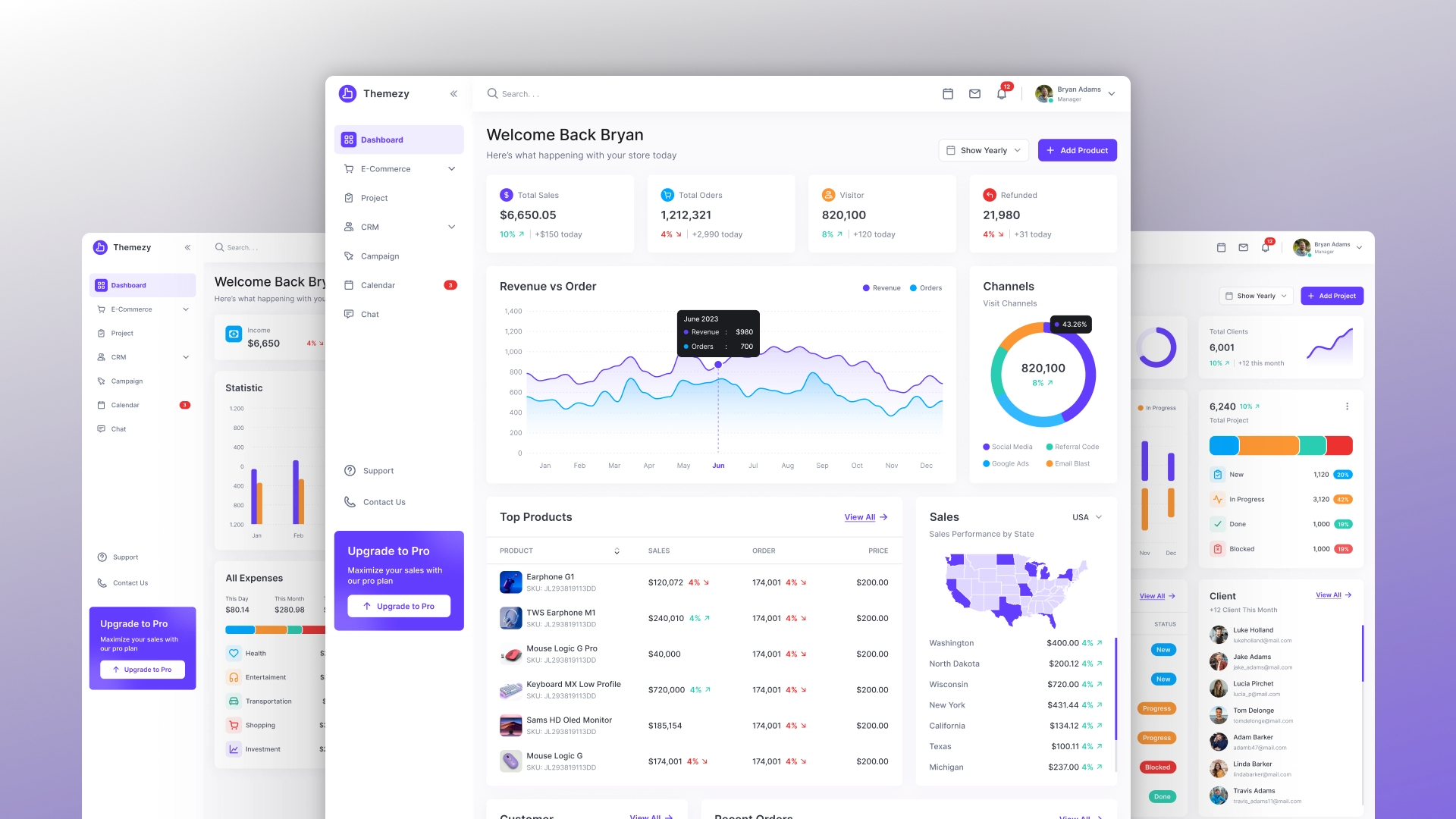
What is an ERP system?
There are different ERP systems that differ visually and functionally, but are architecturally almost the same: database, application core and modules.
The database contains aggregated commercial and organizational information: customer and team data, procurement, finance, and more.
The core is the software part that coordinates the work of all modules, the operational part of the ERP system structure.
Functional modules are software that can be connected to the core, depending on business requirements. These are CRM-systems (Customer Relationship Management) for managing relations with customers, modules that control production chains - SCM-systems (Supply Chain Management), PLM-systems (Product Lifecycle Management) for managing the life cycle of products, etc.
In addition, the modules can be for internal use - used by the staff of your business - accounting, personnel management, logistics, warehouse, etc. And also for external use - partners and customers have access to them. For example, a mobile application or a personal account.
The main advantage of modular ERP systems is their seamless operation and full compatibility. At the same time, if necessary, the modules can be both disconnected and connected, which will not affect the operation of the system as a whole.
When does your business need to develop its own ERP system?
There are many ready-made package solutions on the market of ERP systems. At the same time, they may not contain a set of modules that correspond to your business; at a time when other solutions offer overly complex and massive systems that will be useless for small and medium-sized businesses.
The development of a custom ERP from the beginning offers a number of functional and interface solutions that will cover the needs of your business and team. Custom ERP is necessary if:
- Your company has unique or specific business processes that cannot be fully covered by existing solutions on the market.
- It is necessary to ensure a more flexible and effective integration with various components, without which the normal functioning of the business is impossible;
- A functional solution is required to manage the level of data protection and ensure a high level of security;
- Flexible adaptation of business to the specifics of the industry and compliance with all requirements and standards is required;
- Own ERP system can be developed taking into account the future needs of the company and provide scalability and flexibility, which are not always available in ready-made solutions on the market.
As a result, the ERP system is software that collects all data about the company's processes in a single ecosystem, which helps the team to quickly make more effective decisions. At the same time, ERP systems are suitable for most areas of business, from financial to production.
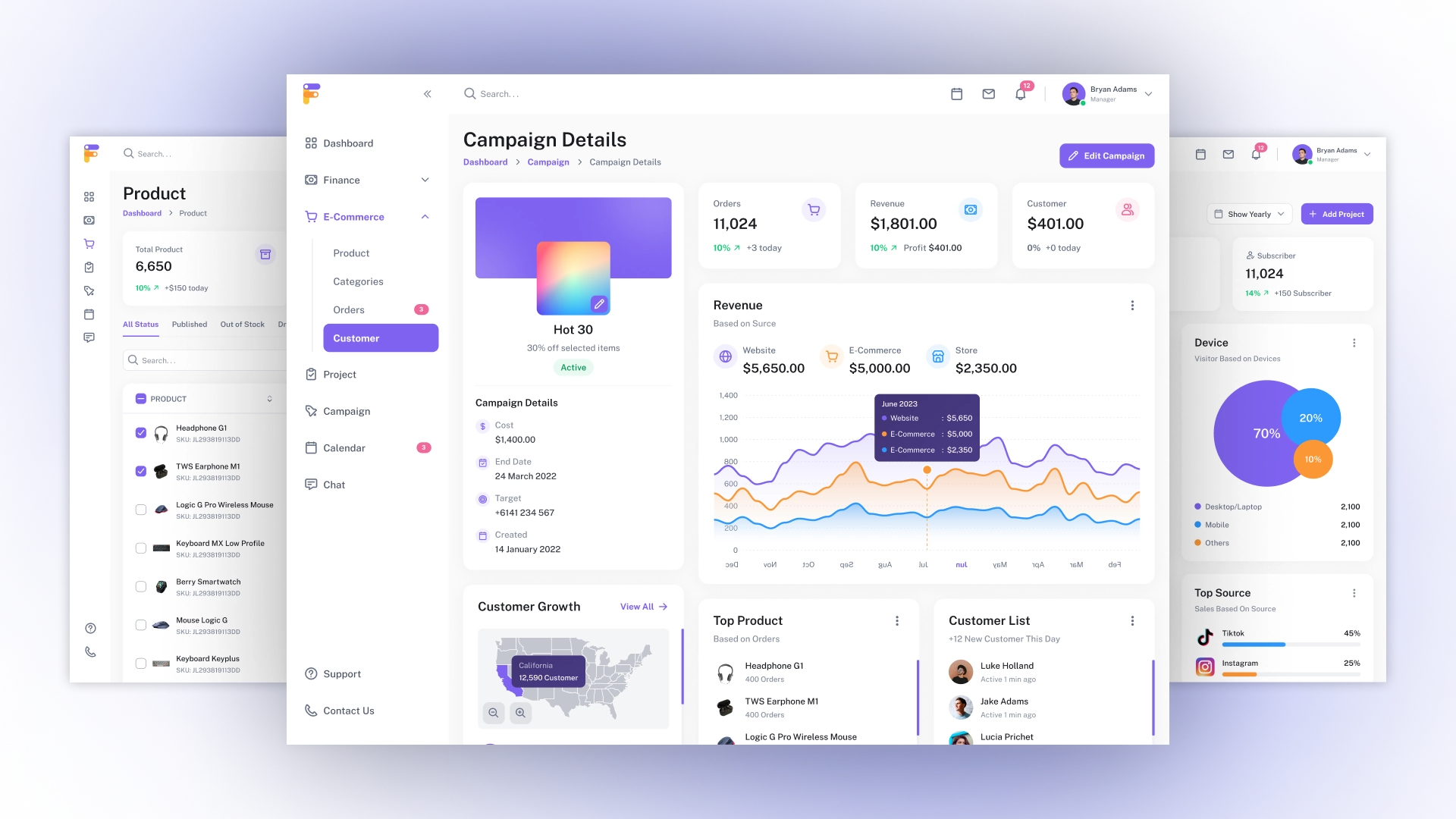
The modules of the ERP system will help the manufacturing business to automate the supply of raw materials, more effectively monitor production chains and the quality of the final product.
Insurance companies, banks and leasing companies will be helped to optimize and personalize work with clients, automate reporting and update the product line.
In the field of trade , it automates logistics, procurement of goods and accounting activities, generates reports on sales and the effectiveness of the marketing strategy, which generally optimizes and facilitates the conduct of business.
ERP systems allow logistics companies to optimize warehouse management, cargo tracking, and vehicle use. As a result, the efficiency of the entire supply process increases, the delivery time is shortened, costs and the influence of the human factor are significantly reduced.
In the field of healthcare, ERP systems manage patient records, allow them to offer individual offers or remind them about a return visit. They keep track of medical equipment and consumables, as well as automate records based on doctors' free time.
Education . In this field, ERP systems automate the management of educational programs, keep records of student data, plan the schedule according to pre-defined patterns that depend on the free time of teachers.
Hotel business ERP systems help to automate room reservations and work with customers. Accurately keep track of guests, control stocks and finances.
In the consulting business, ERP systems are used for project management, time and expense accounting, client database management, project financing, and general marketing campaigns.
In fact, ERP can be implemented in any area of business, regardless of industry. It will be equally useful for both small businesses and international companies whose offices are located in different countries. After all, the main advantage of ERP is the optimization of processes, which naturally lead to increased profits.
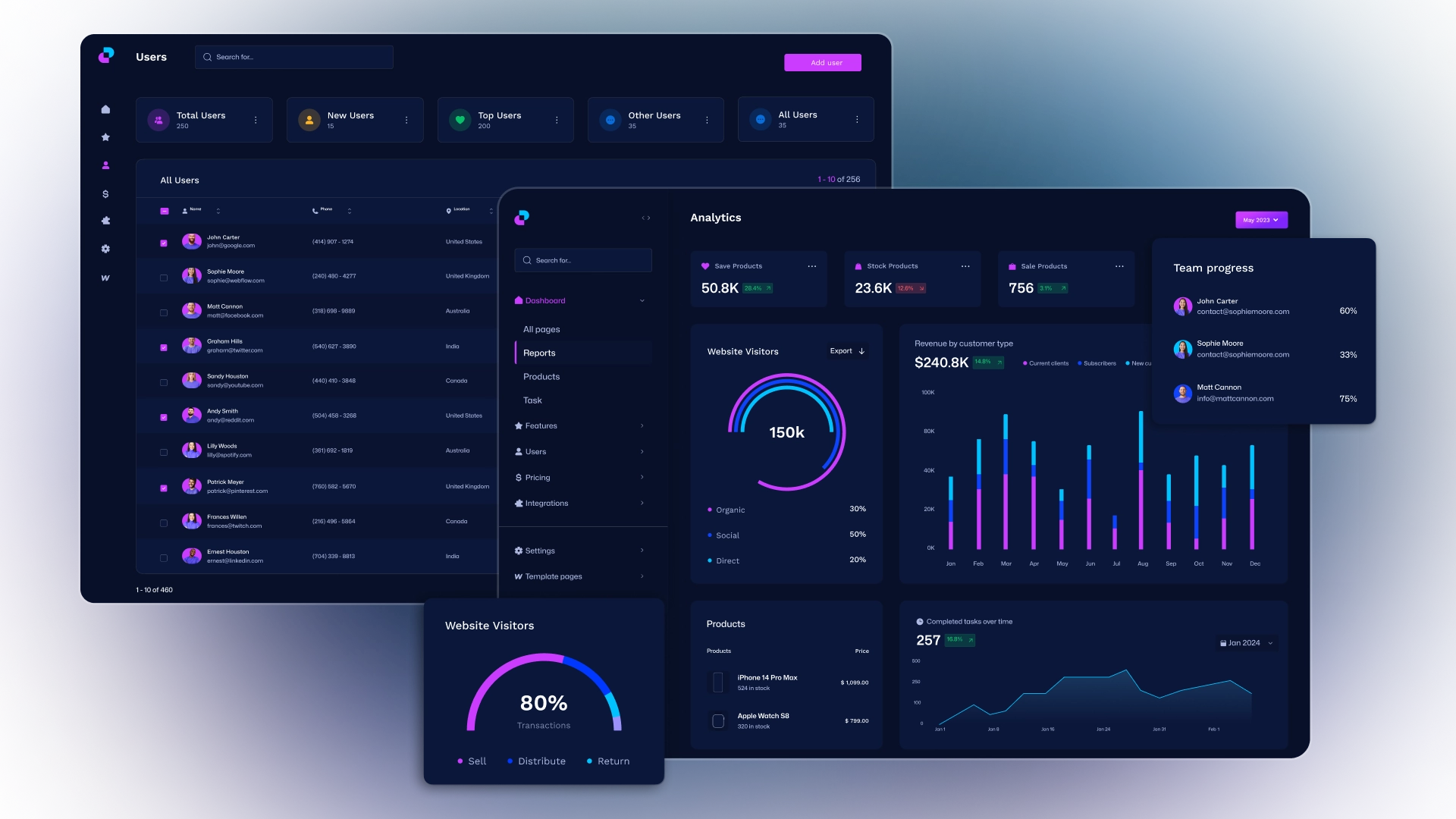
What advantages does the development of an ERP system bring to a business?
Modern business cannot do without accounting systems for its activities, because the higher the level of its adaptation to the market level and the higher the flexibility of business processes, the greater its profitability and efficiency. By integrating an ERP system into your business, you get:
- Effective financial planning
Optimization includes the automation of accounting, budgeting, auditing, compliance, tax, and so on processes.
- Quality customer service
The ERP system can include a CRM module, which is responsible for sales automation, customer support, customer support, feedback collection, etc. This frees sales managers from routine work and redirects their focus to higher priority tasks.
- Flexibility and scalability
ERP systems offer a flexible architecture that allows you to adapt the system to changing business needs and scale it as the enterprise grows. Control over a new infrastructure in a business with ERP can be set up quite quickly by connecting a new module and synchronizing it with others.
- Automation of operations
ERP modules allow you to automate the same events that take a lot of time from teams. For example, drawing up sales reports and drawing up other work documentation. Automation of this process eliminates the human factor and the risks associated with it.
- Effective personnel management
HR management at large enterprises is a rather time-consuming process. ERP allows you to optimize the onboarding and evaluation of team performance, will help to keep records of employment, open and closed vacancies, conduct motivation evaluation, etc. All this relieves HR managers, allows more effective management of resources and speeds up various bureaucratic processes.
- Electronic document flow
This module optimizes the processes related to registration, creation and verification of internal and external documentation: templates, approval and sending of correspondence for revision, updating statuses of work on the document, etc. In addition, the module can store all documents, send automatic notifications, and monitor the execution of document tasks.
- Detailed sales statistics
Depending on the configuration of the module, the functionality can automatically collect information about sales from various sources: cash register systems, online stores, partner programs, social networks. Aggregate information that can be used to evaluate the effectiveness of marketing campaigns and sales strategies, as well as forecast sales for the future period.
Stages of ERP system development
The development of a custom ERP system that will automate a large volume of business processes requires a comprehensive approach, which always begins with planning and analysis.
- Planning and analysis
At this stage, business requirements for the future ERP are determined: which chain processes need to be optimized and which should be automated. What are the key issues and issues that an ERP system should address. On the basis of these studies, the requirements for the future product are prepared, which are drawn up by the analyst together with the customer.
- Designing
As soon as the requirements are formed and agreed with the Product Owner, a more detailed development of the project begins, which can be conventionally divided into functional and visual.
The functional includes the development of the business logic of the entire ERP system. Connections between modules are thought out, formulas and general mathematics of ERP work are developed.
In parallel with the functional part, the ERP mockup is being developed - the very first version of the visual interfaces. As a result, a package of documentation is compiled, on the basis of which an assessment of the terms and cost of the system is made.
- development
Once the prototype is agreed with the customer and the requirements are completed, the project manager assembles a development team to work on the project. Depending on the complexity and specifics of the project, the development team chooses a technology stack for work. For simpler systems, it is sufficient to use PHP and its frameworks (Yii2, Laravel). More complex systems are developed using Python and its frameworks (Django, Flask). Large Enterprise projects are most often implemented in Java.
At the same stage, Front and Back-end developers create software, as well as customization and integration with other business software, if necessary. For Front, depending on the functional requirements, standard layout or Vue.js can be used.
A mobile application for the team or customers can also become part of the ERP system. In this case, a mobile application is being developed in parallel with the web version. It includes the design of the interface and its implementation, for example, on Flutter - a framework for creating cross-platform mobile applications. The back-end on the mobile application and the desktop is usually common and does not require separate development. Also, personal accounts of customers or partners can be developed and implemented in a custom ERP.
- Testing and debugging
Each ready-made component of a custom ERP is submitted to testing, where functionality, performance and security tests of the system are conducted, as well as errors are corrected and shortcomings are improved. Errors or inaccuracies in the work are transferred to the developers and tested again.
- Implementation and training
A description and various manuals are being prepared for the release version of ERP, using which you can easily integrate the system into the business. Based on the instructions, the training of the team can also be started.
- Support and support
Already after the implementation of the system, and in accordance with previous agreements, its support and maintenance is carried out, including solving team and business issues, updating and refining the functionality.
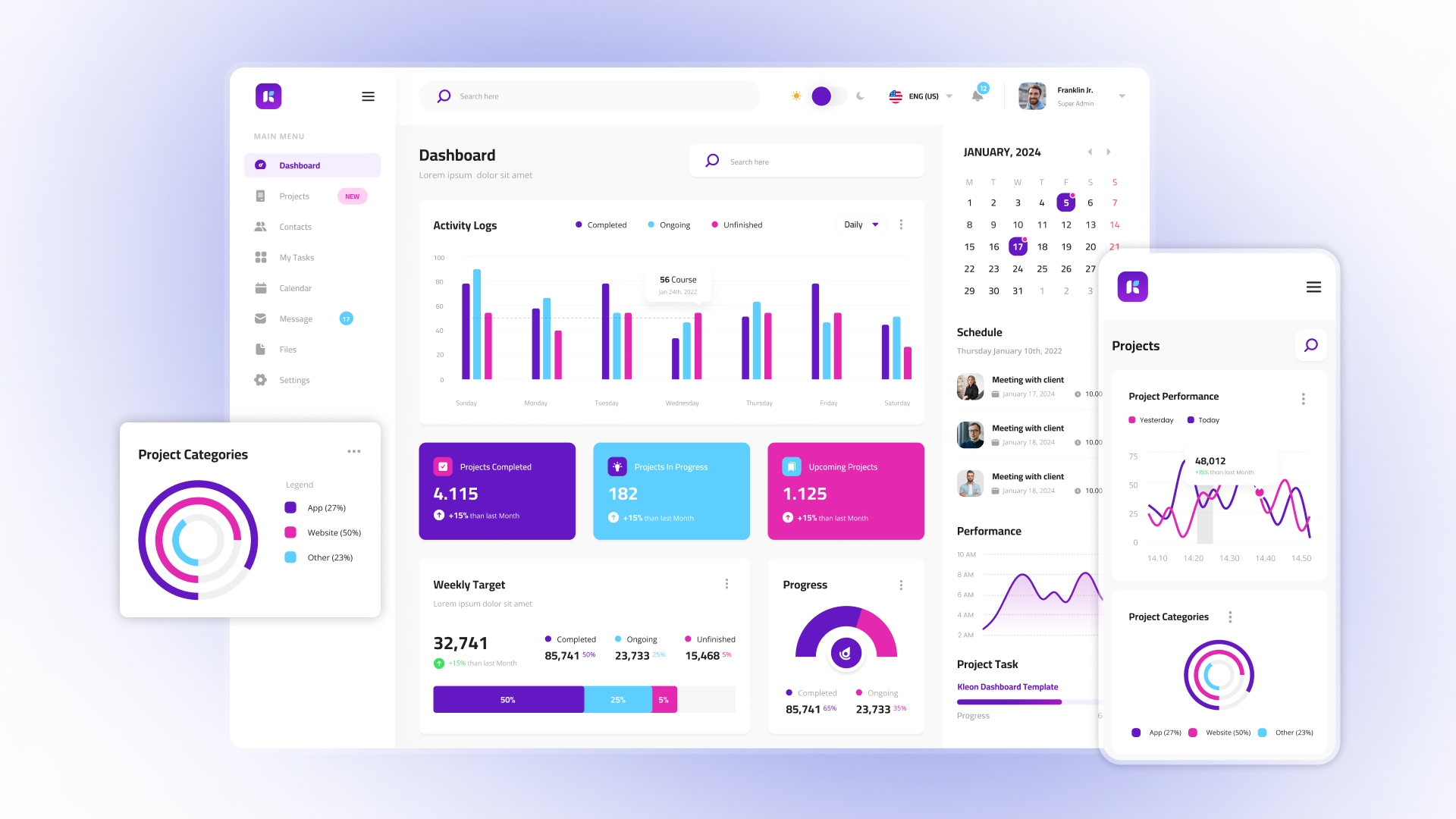
Our core values
Avada Media offers a high level of professionalism, as well as deep competence in the field of ERP system development. Our team has more than 100 middle and senior level specialists (Backend, Frontend, Mobile, designers, managers, testers), which allows us to create individual enterprise-level solutions that meet the needs of customers as much as possible.
We constantly follow the latest trends and innovations in the field of automation, which allows us to implement advanced solutions that accelerate data processing, minimize the human factor and scale business. Which, in the short and long term, leads to increased profits.
Avada Media is ready to solve any tasks in the field of ERP system development, starting from the design and analysis of requirements, and ending with the implementation and support of the system throughout the entire life cycle of the project.
FAQ questions
- What is an ERP system and why do I need it?
ERP (Enterprise Resource Planning) system is an integrated business management program that combines various functions, such as financial management, production, sales, etc.
- What are the benefits of implementing an ERP system for my business?
The use of an ERP system will improve resource management, optimize business processes and reduce operating costs, which will ultimately affect the company's profitability.
- Can ERP systems be cloud-based or do they need to be deployed locally?
Yes, modern ERP systems can be both cloud-based and local. The choice depends on the requirements and preferences of your company.
- What support will be available after the implementation of the ERP system?
After the implementation of the ERP system in accordance with the terms of the contract, we provide technical support, software updates, as well as consultations on the use and optimization of the system.
- What examples of successful implementation of ERP systems do you have?
We have examples of successful development and implementation of ERP systems for real estate, logistics, wholesale trade, engineering, and marketing. We will provide you with successfully closed cases to familiarize yourself with our experience and work results.
















